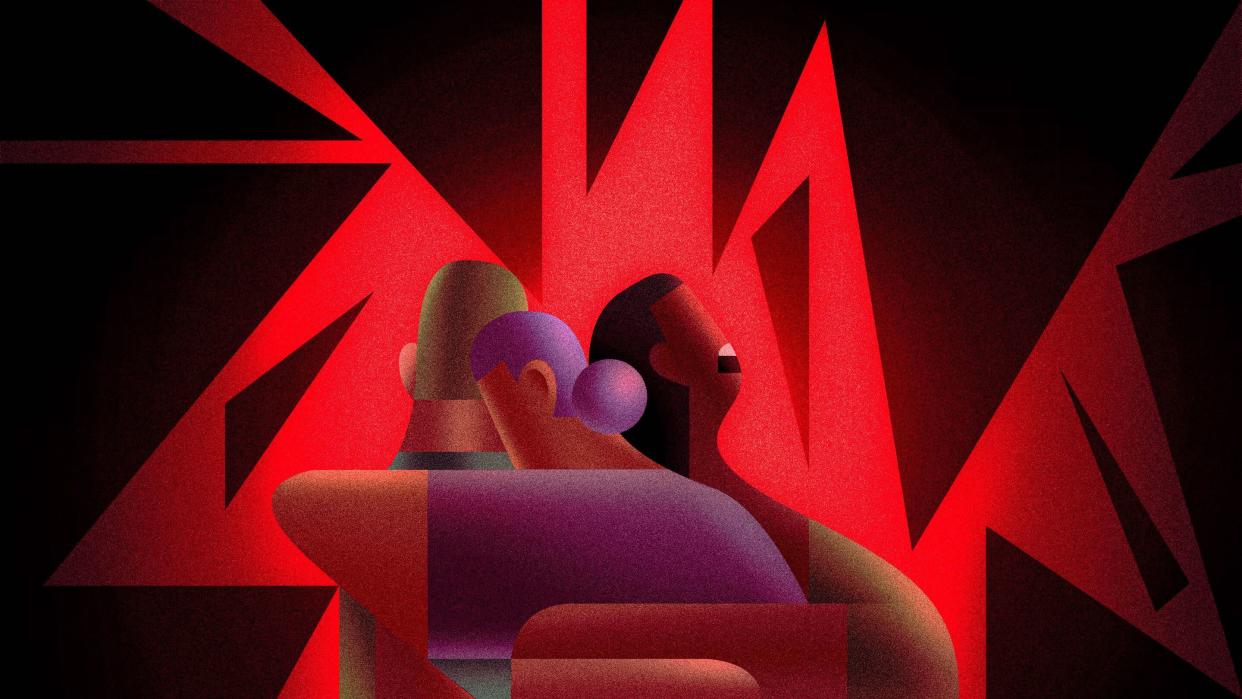O'Shae Sibley's death is a 'wake-up call' about rise in anti-LGBTQ hate incidents, experts say

The stabbing death of O’Shae Sibley, who was voguing outside a gas station in Brooklyn when he was attacked last month, has sparked a renewed concern over the rise of hate-motivated incidents against the LGBTQ community.
“Sibley’s death really marks a dramatic spike in anti-LGBTQ hate and harassment across the country,” Tony Morrison, senior director of communications at the Gay and Lesbian Alliance Against Defamation (GLAAD), told Yahoo News.
According to authorities, a group yelled homophobic slurs at Sibley and told him to stop dancing before he was attacked on July 29. “They hated us cause we are gay!” Otis Pena, Sibley’s friend, posted to Facebook after Sibley’s death.
Hundreds of people attended Sibley’s funeral on Tuesday in his hometown of Philadelphia, where his loved ones described him as a “beacon of light” for the community. "It's just a tragedy," Jake Kelly, his father, said during the service.
A 17-year-old was arrested and charged with second-degree murder as a hate crime in Sibley’s death. On Thursday the high school student was indicted on one count of murder in the second degree as a hate crime among other charges, facing decades behind bars.
“We're getting into a place now where we’re moving from mean tweets and posts to violent crimes and real-world harm on the community in real-world ways,” Morrison said.
During Pride Month in June, GLAAD and the Anti-Defamation League tracked more than 145 anti-LGBTQ extremist incidents.
In addition, the two organizations released an annual report detailing how the severity of the extremism against members of the LGBTQ community continues to escalate. According to the report, 356 anti-LGBTQ incidents occurred in the U.S between June 2022 and April 2023.
“This first-of-its-kind report provides a sobering snapshot of the deluge of hatred the LGBTQ+ community faces every single day, sparked in large part by organized extremist activity,” ADL CEO Jonathan Greenblatt said in a press release. “We hope these stark findings serve as a wake-up call to lawmakers, civil society leaders and community leaders to stand up to this onslaught of hate and support our LGBTQ+ community.”
Morrison says crimes against the LGBTQ community are not new, but they usually don’t lead to criminal charges, and often don't include hate-crime offenses, which tend to carry stiffer penalties.
“I think that we have to call violent acts for what they are, we have to call out hate for hate, homophobia is homophobia, and a violent act predicated on prejudice is not a point of view. It is an act of hate,” Morrison said.
Kevin Nadal, distinguished professor of psychology at the City University of New York, says hate crimes are often difficult to classify and charge in the U.S.
“Oftentimes, this has to be well documented, whether it be previous manifestos or writings, that demonstrates a person has a specific bias towards groups,” Nadal said. “[Or if] witnesses were able to hear specific language before a crime is committed, it can serve as a justification for something to be deemed a hate crime.”
In 2021, there were 9,065 reported hate crime incidents nationally, up from 8,210 in 2020, a nearly 12% increase, according to the Department of Justice.
While experts say there has been a rise in hate crimes, Nadal says such incidents are tough to track accurately.
“It’s a tricky statistic,” he said, “because there has been an increase in reported hate crimes in the United States across groups. However, hate crimes are still severely underreported.” He added that in many cases survivors of hate crimes are fearful of reporting the crime.
Despite the increase of hate crimes in the LGBTQ community, “GLAAD research finds that nine out of 10 Americans support LGBTQ equality, acceptance and the fact that LGBTQ people should be able to live their lives without fear of discrimination,” Morrison said, adding that acceptance and discrimination are both at an all-time high.
“So I think that we’re at a real crossroads in this country,” he said.
